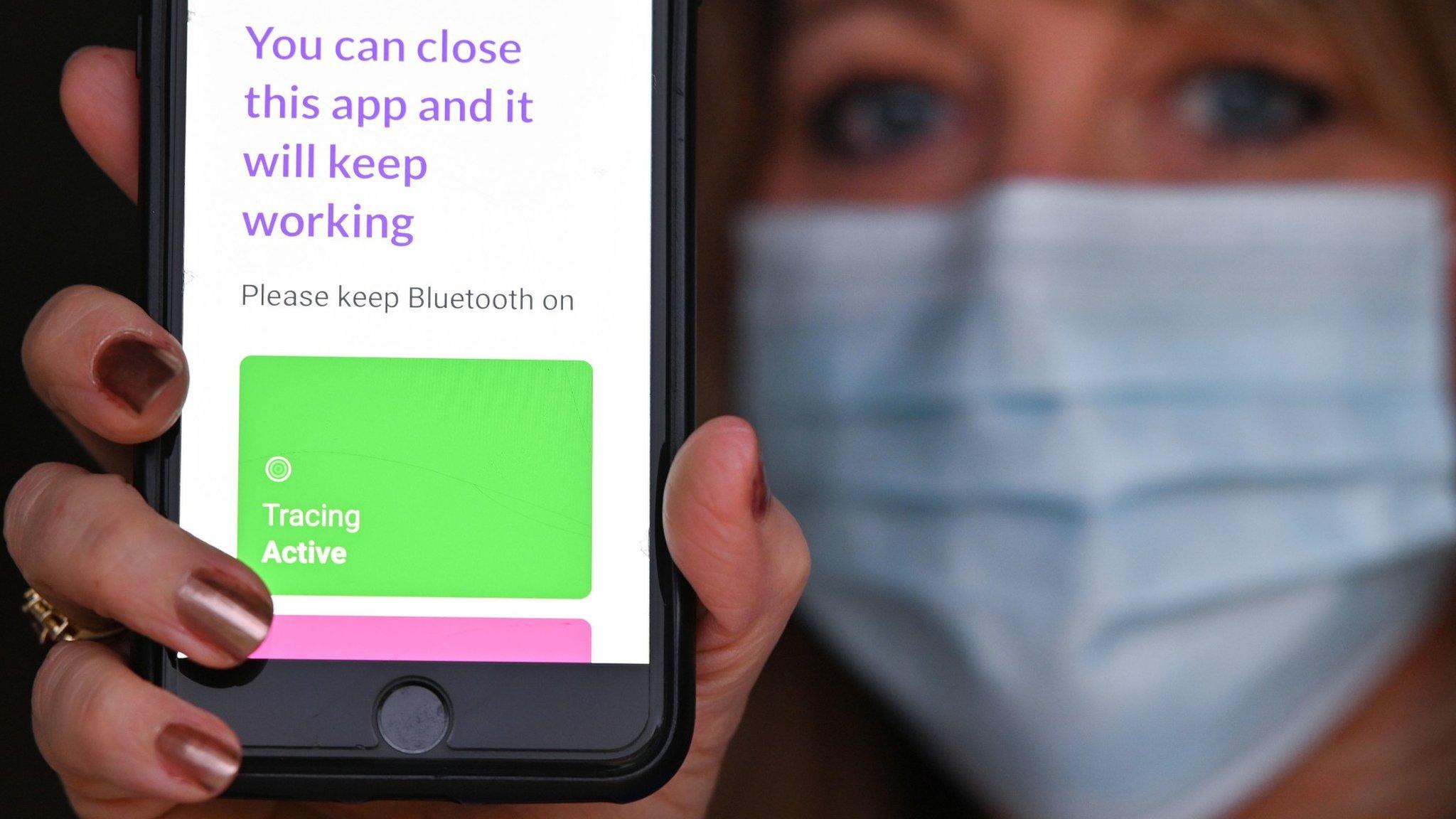Covid in Scotland: Thousands turn off tracking app
- Published
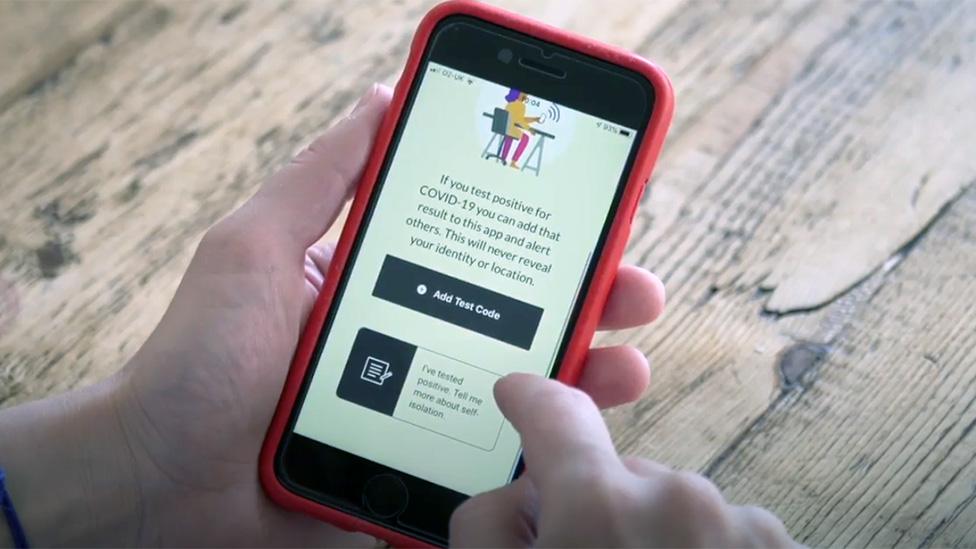
Scotland's tracking app requires users to manually report a positive test result
About 50,000 people stopped using Scotland's Covid tracking app in July, the Scottish government has confirmed.
At the beginning of the month BBC Scotland revealed Protect Scotland had about 950,000 active users despite being downloaded more than two million times.
The Scottish government has now confirmed that figure has dropped to 902,000 active users.
A spokesman said the number using the app could "fluctuate".
He said some users may pause the app because, for example, they work in the NHS.
Others could have deleted or disabled the app, or could have disabled bluetooth on their phone which means the app does not gather data.
The Protect Scotland app alerts users who have been in close contact with someone with Covid and it may advise them to self-isolate.
During a surge in Covid cases in the first three weeks of July, 9,012 contacts were alerted via the app.
There were about 50,000 positive tests during this timeframe but just 7,427 people registered a positive result with the app.
Meanwhile more than 600,000 people in England and Wales were "pinged" in one week.
Working effectively
Their NHS Covid-19 app sent 10 times more self-isolation alerts in the week between 8 and 15 July than Scotland's total in 10 months.
In the week to 17 July, one in 75 people had the virus in England and one in 80 in Scotland, according to the Office for National Statistics.
However NearForm, the Irish company that designed the Protect Scotland app, said it was working effectively.
Chief commercial officer Larry Breen said: "We're permanently monitoring not just this but all of the [tracking] apps we have out there, to make sure the functionality is there.
"From what we can see on all of the apps, they are performing as they are designed to perform."
Since the Protect Scotland app was launched in September 2020, 60,145 alerts have been sent to people who were contacts of 33,540 people who tested positive for Covid.

Why is the NHS England app 'pinging' more people?
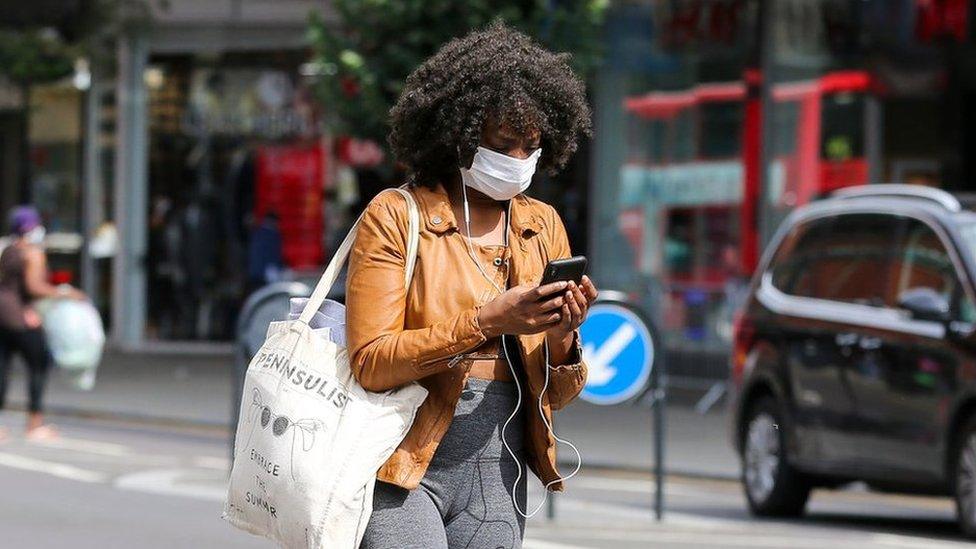
With both apps, if you spend enough time close to another person using it, you will receive a "ping" alert if they test positive for Covid.
You need to be 2m (6ft) from them for 15 minutes to trigger a message.
Scotland's deputy chief medical officer, Nicola Steedman, previously explained the software is more complex in the English app, but no less sensitive.
However, in Scotland, where the app is designed to preserve privacy, users have to enter a code to register an anonymous positive test result.
In England, if you book a Covid test through the app, any positive result will be automatically registered.
The NHS England app is combined with a code scanner with which people can register their presence in a restaurant or pub. The Scottish app lacks that incentive to download it, and to keep it active.

Jackie Ballie, Scottish Labour deputy leader, said some people may have deleted the app because they had lost confidence in the system.
"Maybe it is because people don't want to be told to self isolate, but I actually also think in part that people are losing confidence in the system because they expect to be contacted, they know they have been near a close contact and yet no body is getting in touch with them," she said.
Earlier this month it emerged that contact tracers in Scotland would call only the most urgent cases, while texts would be used "more extensively" for cases deemed low risk.
And NHS Grampian warned that a spike in cases meant it would not be able to trace the contacts of everyone who tests positive.
"That has huge implications because they are self isolating, they are losing income and they are not able to apply for the self isolation grant because test and protect haven't pinged them and told them to self isolate." Ms Baillie told BBC Radio Scotland's Drivetime programme.
"People can't afford to do that. The system as it currently stands is not simply robust enough."
'Huge number at risk'
Dr Elly Gaunt, a virologist from the University of Edinburgh's Roslin Institute, told the BBC the app was still a vital tool to prevent Covid cases while only 55% of people are fully vaccinated.
"This leaves a huge pool of people who are still susceptible to a significant disease outcome, particularly things like long Covid, which is still not being captured in the analysis being undertaken to make these kind of decisions," she said.
She said the government was giving people a choice between getting vaccinated or getting infected.
"We still have a responsibility to society to prevent the spread of this virus because there are still a huge number of people who are at risk," she added.


- Published23 July 2021
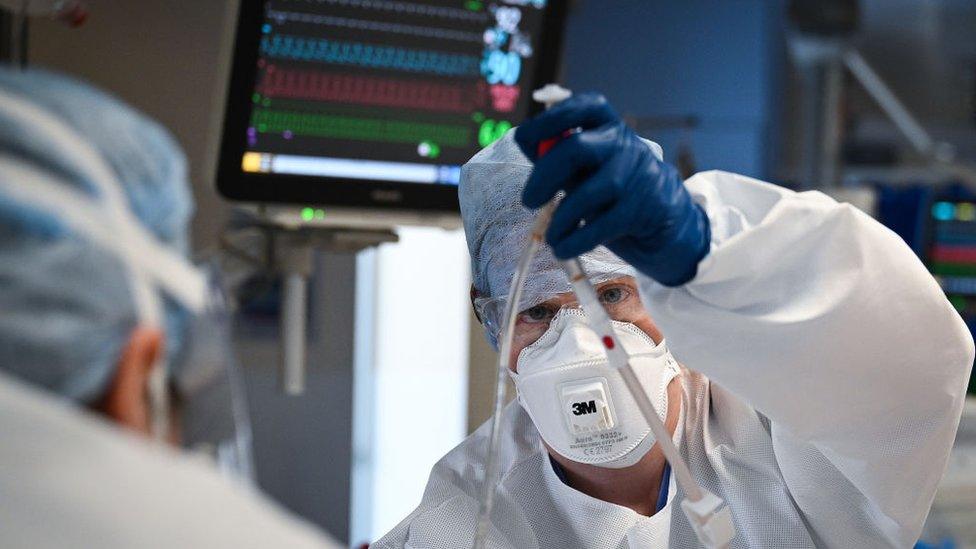
- Published22 July 2021
- Published4 July 2021
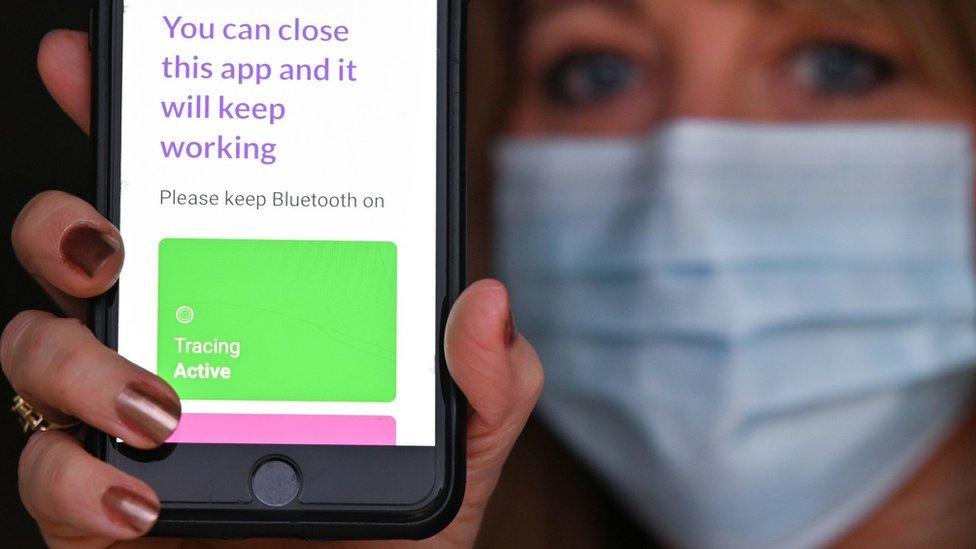
- Published10 September 2020
